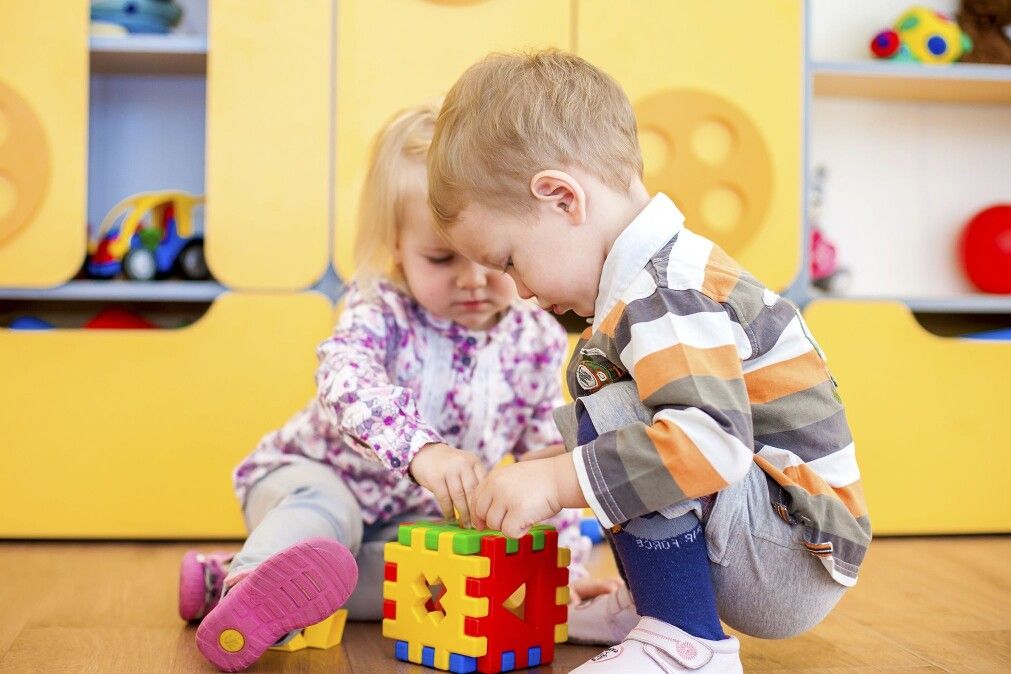
Getting ready for kindergarten: developing the necessary skills
The kindergarten is an important step towards the independent life of a baby. For the first time the baby will begin to stay without mother for a long time. But, besides the psychological adaptation of children, physical readiness for visiting the kindergarten is also important.
Of course, all babies develop differently. But the independence of the kids primarily depends on the parents. Start preparing your baby for the kindergarten from early childhood. First, review your day regimen. The kindergarten clearly adheres to the day regimen and schedule for breakfast, dinner and supper. We advise you to find out in your kindergarten at what time children go to bed during the day and adjust your daytime sleep. At first, it will be difficult for the baby, but over time he will get used to, and it will be easier to him to adapt in the kindergarten.
First, your baby comes to the nursery, where all the kids eat together. The nursery teachers help the children, but they physically do not have time to feed each child with a spoon. In order to teach the child to eat by himself, give him a spoon at the earliest, let him try to eat himself. Mothers begin to teach children to eat on their own, introducing the first supplementary food! To do this, it is necessary to buy two spoons at once. One - to feed the baby, and the other - to allow him to eat on his own. Of course, breakfast or dinner will last longer, but the results will pleasantly surprise you. The child should be able to drink, using a cup. An excellent training cup for independent drinking is 360 cup.
Teach your child to wash his hands after using the toilet, walking and before eating. In kindergarten, each child has his own towel. Teach your child to wipe his hands, using his little towel. Tell the baby, in a playful way, why it is necessary to wash hands, about the microbes which will bite the tummy, if not to wash them off with soap and water.
An important skill to start visiting the kindergarten is the ability to use a potty-chair. Once again, this is a skill, which comes to every child at a different age. Some children at the age of one year are already dry, others may have casus at 2 and 3 years, there is nothing wrong with this. Even if your child dispenses with a diaper for a long time, you definitely need to leave removable linen in the kindergarten for the period of adaptation. If the baby still uses diapers, then in the kindergarten, under the influence of the team, he will quickly learn to use the potty-chair.
Teach your child to dress by himself! The biggest mistake of parents is the lack of patience and time. After all, the baby will dress by himself long afar. But the mother should be patient and teach the child how to dress without assistance. This skill will save your time as well, when you will get ready for a work in the morning. Buy comfortable velcro fastened shoes and elastic pants to make it easier for your child. Do not hurry the child, because it is still too difficult for him to dress quickly.
Praise for every achievement, motivate and encourage.
Teach your child to stay without mom and dad. This skill is very important. It is worth leaving the child with grandparents, or to attract godmothers or aunts. The child should get used to the fact that mom and dad will go, but will definitely come back. Soft toys will help to ease separation from parents. Buy a soft friend for your child, come up with a name for it and leave the baby with a toy. The child will feel safe because he will not feel alone.
Take a walk in the courtyard of the kindergarten. Get acquainted your child with the nursery teacher in advance. Tell how well the baby will feel in the kindergarten and that only adult children will be taken there. The child will form a positive image of the kindergarten and it will be easier for him to adapt.
Get ready your child in advance and be patient. Remember that the best teacher for a child is his mother. Treat all failures with understanding, praise, help and explain, hug more often and do not forget to remind your child and yourself that your child is the best!